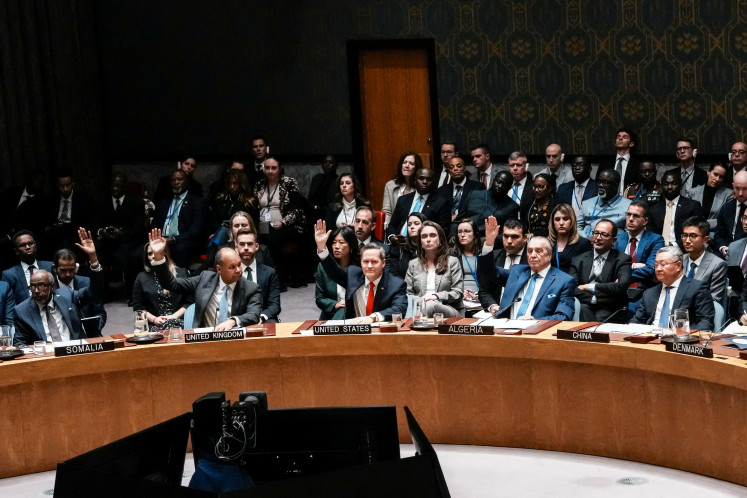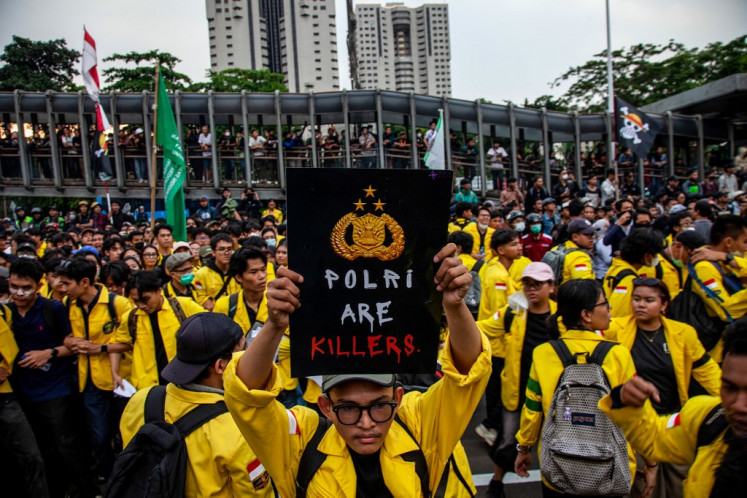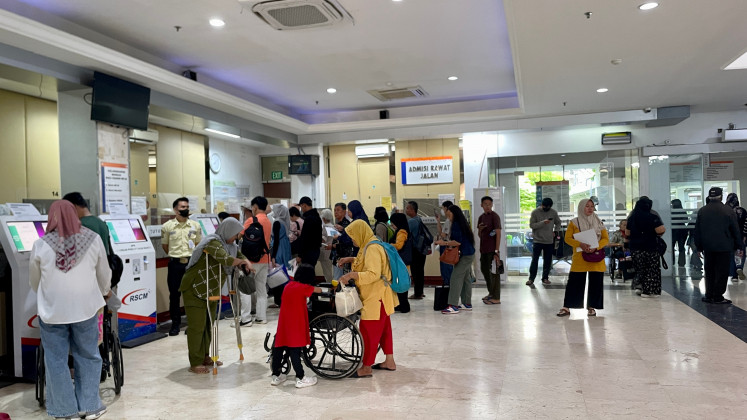Popular Reads
Top Results
Can't find what you're looking for?
View all search resultsPopular Reads
Top Results
Can't find what you're looking for?
View all search resultsBill poses threat to freedom
The House of Representatives is set to pass the bill on mass organizations that will allow the state apparatus to halt the activities of organizations, ignoring protests from human rights activists who say the bill, if enacted, will deny the right to freedom of association
Change text size
Gift Premium Articles
to Anyone
T
he House of Representatives is set to pass the bill on mass organizations that will allow the state apparatus to halt the activities of organizations, ignoring protests from human rights activists who say the bill, if enacted, will deny the right to freedom of association.
Chairman of the House’s special committee deliberating the bill, Abdul Malik Haramain, said the committee had resolved nearly all the contentious issues in the bill and expected to bring it to the House’s plenary session for approval.
“We are now only discussing whether we must freeze the operations of problematic mass organizations through a district court ruling or a legal opinion from the Supreme Court. But it appears that most of us prefer the second option,” he said.
The lawmaker added that he expected the bill, which will replace the 1985 Mass Organizations Law, to be approved by early March at the latest.
Malik said he was aware of criticism of the bill, but added that the state needed to “discipline” problematic groups or organizations operating in the country.
The government, he argued, must have the authority to dissolve groups that run counter to the state’s
ideologies and interests.
The move to revise the 1985 law was triggered by public frustration at the perceived impunity given to mass organizations, such as the Islam Defenders Front (FPI) that often resorts to violence in many of its activities, especially during the holy month of Ramadhan.
Home Minister Gamawan Fauzi said that the 1985 law was out of date and made it difficult for his ministry to take swift action against violent groups like the FPI. He said the measures against violent mass organizations in the current law were “too complicated, time-consuming and inefficient”.
Human rights groups feared the bill would target groups accused of spreading ideologies deemed dangerous by the state, such as Marxism and atheism.
The National Commission on Human Rights (Komnas HAM) called on the House on Friday to suspend the passage of the bill, which it said granted the government excessive authority to control civil society groups and would eventually destroy the nation’s democracy.
Komnas HAM chairman Otto Nur Abdullah cited that the lack of a clear definition of mass groups offered in the bill would enable the government to crack down on groups deemed to be against the state’s philosophy of Pancasila as well as the notion of the Unitary State of the Republic of Indonesia (NKRI).
Articles 2 and 3 of the latest draft, for example, stipulate that all mass organizations must conform to the 1945 Constitution and the principles of Pancasila. This regulation also applies to foreign organizations operating in Indonesia.
“Excessive power vested in the government will bring back an authoritarian regime to this country,” the commission said.
Concerned about the latest development in the bill’s deliberation, the United Nations Human Rights Council (UNHRC) warned the House and the government to adopt international human rights values that guaranteed the freedom of assembly and association in the bill.
A group of independent experts with the UN’s human rights body said the current bill would threaten Indonesia’s democratization.
UN special rapporteur on freedom of religion or belief Heiner Bielefeldt said the requirement that the founding of associations should not contradict Pancasila (which consecrates the belief in the One True God) would violate freedom of religion or belief.
“Freedom of religion or belief has a broad application, covering non-theistic and atheistic convictions,” Bielefeldt said in a statement.
Contentious articles in the bill
Article 2: Mass organizations, including foreign groups, must uphold the 1945 Constitution, Pancasila and the Unitary State of the Republic of Indonesia (NKRI).
Article 3: Mass organizations can adopt other principles as long as they are in line with the 1945 Constitution.
Article 21: (c) Mass organizations are obliged to maintain the unity of the state, uphold morality and ethics and nurture the country’s religious and cultural norms.
Article 61: Mass organizations are prohibited from:
1. Adopting national and international state symbols as well as symbols that resemble those of separatist groups.
2. Conducting activities that promote racial conflict, blasphemy and violence.
3. Receiving or giving illegal support from and to foreign agencies.
4. Promoting teachings that are against Pancasila.
















